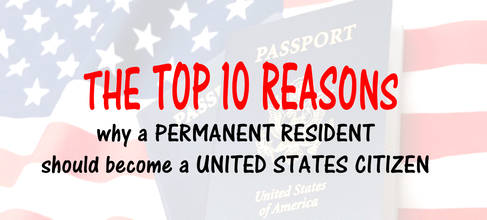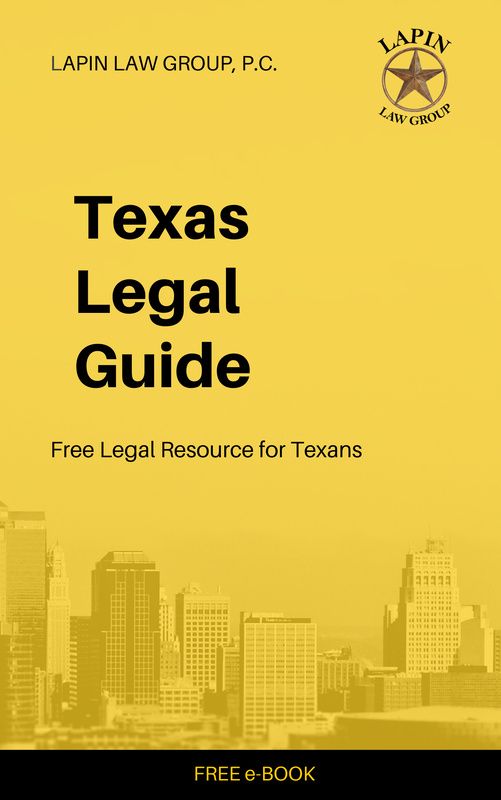1. The Right to Have Rights: Chief Justice Earl Warren wrote that “Citizenship is [a] man’s basic right, for it is nothing less than the right to have rights.” Perez v. Brownell, 356 U.S. 44 (1958). Becoming a U.S. citizen will entitle a LPR to all the rights that are secured for citizens by the U.S. Constitution.
2. Deportation: Consistent with the idea that citizenship is “nothing less than the right to have rights,” perhaps the most important reason a LPR might want to become a U.S. citizen is that citizens may not be deported (removed). This is especially important because, although LPRs are, as a group, law-abiding people, none of us can predict the future with certainty. It is not uncommon for a LPR to be placed in deportation proceedings as the result of some relatively minor offense. Being deported can, of course, tear families apart or, at the very least, cause unnecessary — and avoidable — hardship. Further, even if a LPR who is placed in deportation proceedings is ultimately successful in avoiding deportation, the legal fees associated with deportation defense can be staggering.
3. Foreign Travel: Many LPRs travel abroad on a regular basis, either for business or pleasure, or to visit family and friends in their country of origin. It is no secret to experienced international travelers that those traveling on an American passport experience less inconvenience from foreign border and other officials, as compared to their fellow travelers from other countries. Also, many countries will allow a U.S. citizen to enter and visit their country for a short period of time, without requiring the U.S. citizen to obtain a visa. Furthermore, U.S. Customs and Border Protection (CBP) officials can refuse a LPR reentry to the United States for a variety of reasons, some of which may be trivial or, worse yet, erroneous. American citizens, on the other hand, have an absolute right to enter and remain in the United States.
4. Living Abroad: U.S. citizens may live outside of the United States for an indefinite period of time. LPRs, on the other hand, risk losing the privilege of reentering and living in the United States if they are outside of the United States for more than 6 months.
5. Family Reunification: It is much easier — and quicker — for a U.S. citizen, as compared to a LPR, to bring their family members to the United States. A U.S. citizen may sponsor their parents, spouse, and minor children, all without any limits, quotas, or priority dates.
6. Federal Employment: Most positions of federal employment require U.S. citizenship. Becoming a U.S. citizen thus provides a LPR with many more job opportunities.
7. Voting: LPRs live — and pay taxes — in the United States, but only U.S. citizens have the right to vote in U.S. elections. “Taxation without representation” was one of the major reasons the American colonists declared their independence from Britain. Becoming a U.S. citizen gives a LPR the right to vote and, by extension, to be truly represented in the political process.
8. Become an Elected Official: Most U.S. elected positions require U.S. citizenship. Once a LPR becomes a U.S. citizen, that person may run for, and hold, elective office at the federal, state, and local levels of government.
9. Government Benefits: U.S. citizens are eligible for certain government benefits and other forms of financial aid, including college scholarships, that are unavailable to LPRs.
10. Cost of Citizenship: Most “Green Cards” are valid for, and must be renewed every, 10 years. Lost “Green Cards” must be replaced. The United States Citizenship and Immigration Service (USCIS) fee to renew or replace a Green Card was $540.00, at the time this article was written. The citizenship process, by comparison, is a “one-time” expense. While it is true that the USCIS fee to renew or replace a lost “Green Card” is slightly higher than the fee to become a U.S. citizen, once a person becomes a citizen, that person will never again be required to pay the USCIS a fee — for anything.
For more information, call (877) 570-2200, or CLICK HERE to email us
GET A FREE e-BOOK
Lapin Law Group, with its principal office in the Dallas-Fort Worth Metroplex, serves all 254 Texas counties.



